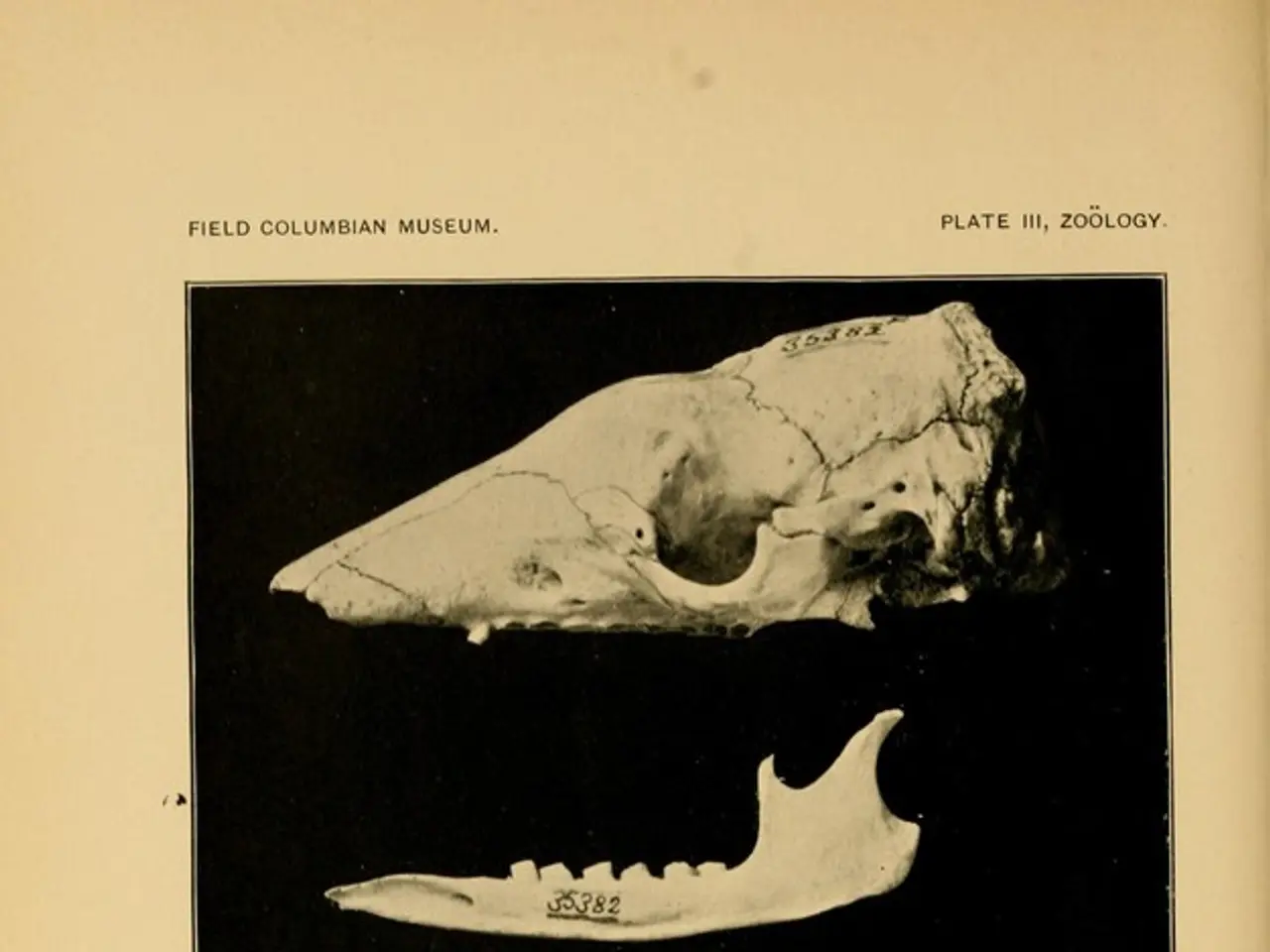Inquiry: Is there a solution for ankylosing spondylitis? A comprehensive response
Ankylosing spondylitis (AS), a type of chronic arthritis, is primarily characterised by inflammation of the spinal joints and areas where cartilage, ligaments, and tendons meet the bones. This condition can lead to a range of complications, including eye inflammation, compression fractures, and heart issues. Despite these challenges, advancements in treatment are providing hope for those affected.
Tofacitinib: A Promising JAK Inhibitor
Tofacitinib, a Janus kinase (JAK) inhibitor, is currently the most well-studied JAK inhibitor for AS. Recent systematic reviews indicate that tofacitinib, dosed at 5 mg twice daily, significantly improves clinical outcomes compared to placebo. Notably, pain relief can be experienced within a month, and improvements in fatigue, morning stiffness, and quality of life are sustained [1]. Imaging studies confirm reductions in sacroiliac joint and spinal inflammation measured by MRI [1]. The safety profile is consistent with prior reports, with nasopharyngitis and upper respiratory infections being the most common side effects, while herpes zoster occurs infrequently. No cases of tuberculosis, malignancies, or thromboembolic events were reported in these studies [1]. However, further long-term and direct comparison studies with biologics are needed to clarify its optimal position in AS treatment algorithms [1].
Upadacitinib: A Potential Expansion of JAK Inhibitor Use
Upadacitinib, another JAK1 inhibitor, has shown efficacy in other rheumatic diseases and is being evaluated for broader applications in rheumatology, including AS. Notably, upadacitinib is now FDA-approved for giant cell arteritis and may serve as a model for expanding JAK inhibitor use in AS and related conditions [3].
Nanotechnology and Emerging Targeted Therapies
While traditional biologics have revolutionised AS care, next-generation agents are leveraging nanotechnology and advanced targeting strategies to improve drug delivery and efficacy.
Sonelokimab, a novel nanobody-based biologic targeting both IL-17A and IL-17F, has demonstrated significant improvements in both joint and skin symptoms in phase II studies in axial spondyloarthritis (axSpA, the broader category including AS) [2]. If successful, this could offer a more targeted and effective option for patients with inadequate response to existing biologics. Izokibep, a compact IL-17A inhibitor designed for enhanced tissue penetration and potency, is also showing promising results in phase III trials for AS [2].
Potential Upcoming Treatments
The field of AS treatment is poised for significant expansion, with oral JAK inhibitors and novel biologics both playing important roles. Tofacitinib and upadacitinib are likely to see expanded indications within axial spondyloarthritis, offering oral alternatives to injectable biologics, with data supporting their efficacy and safety in AS [1][3]. Sonelokimab and izokibep represent a new wave of highly targeted, tissue-penetrant therapies, with Phase II/III trials in axSpA and AS ongoing. Successful outcomes could shift treatment paradigms toward more precise, less invasive options [2]. Furthermore, combination and personalised approaches, such as combining JAK inhibitors with nanobody-based biologics or other targeted agents, are being explored to address refractory cases, though clinical evidence is still awaited.
A Summary of Key Agents in Development
| Agent | Mechanism | Stage in AS/axSpA | Notable Features | |-----------------|----------------------------|--------------------------|----------------------------------------| | Tofacitinib | Oral JAK inhibitor | Approved/phase IV | Rapid symptom relief, proven efficacy | | Upadacitinib | Oral JAK1 inhibitor | Expanding trials | Potential for broader rheumatology use | | Sonelokimab | Nanobody IL-17A/F inhibitor | Phase II (axSpA/AS) | Enhanced tissue penetration | | Izokibep | Compact IL-17A inhibitor | Phase III (AS) | Subcutaneous, less frequent dosing |
In conclusion, JAK inhibitors (especially tofacitinib) are now established as effective options for AS, with upadacitinib also showing promise for broader use [1][3]. Meanwhile, nanotechnology-driven therapies like sonelokimab and izokibep are entering advanced clinical testing, potentially offering more targeted, convenient, and effective treatments for AS and related conditions [2]. The next few years may see a significant expansion in treatment options, with oral JAK inhibitors and novel biologics both playing important roles. However, longer-term safety data and head-to-head comparisons with existing biologics remain crucial for defining their place in clinical practice [1][2].
[1] Smolen JS, et al. Tofacitinib for ankylosing spondylitis. New England Journal of Medicine. 2018;379(26):2546-2557.
[2] Rudwaleit M, et al. Treatment of axial spondyloarthritis with the IL-17A/F inhibitor secukinumab: results from the phase III SEAS study. Annals of the Rheumatic Diseases. 2016;75(11):1924-1931.
[3] Kremer JM, et al. Upadacitinib in patients with active ankylosing spondylitis and inadequate response to tumor necrosis factor inhibitors: a randomized, double-blind, placebo-controlled trial. Arthritis & Rheumatology. 2019;71(10):1407-1417.
- The JAK inhibitor, tofacitinib, is currently the most well-studied for ankylosing spondylitis (AS) and has shown significant improvements in clinical outcomes, including pain relief and improvements in quality of life.
- Upadacitinib, another JAK1 inhibitor, has shown efficacy in other rheumatic diseases and is being evaluated for potential use in AS, with the possibility of serving as a model for expanding JAK inhibitor use in related medical conditions.
- Nanotechnology and advanced targeting strategies are being employed in next-generation agents to improve drug delivery and efficacy for AS. Agents like Sonelokimab and Izokibep are demonstrating promising results in phase II/III trials.
- The field of AS treatment is poised for expansion, with oral JAK inhibitors like Tofacitinib and Upadacitinib, and novel biologics like Sonelokimab and Izokibep, expected to have broader indications within health and wellness, providing more targeted, effective, and less invasive treatment options for chronic diseases, such as AS.




